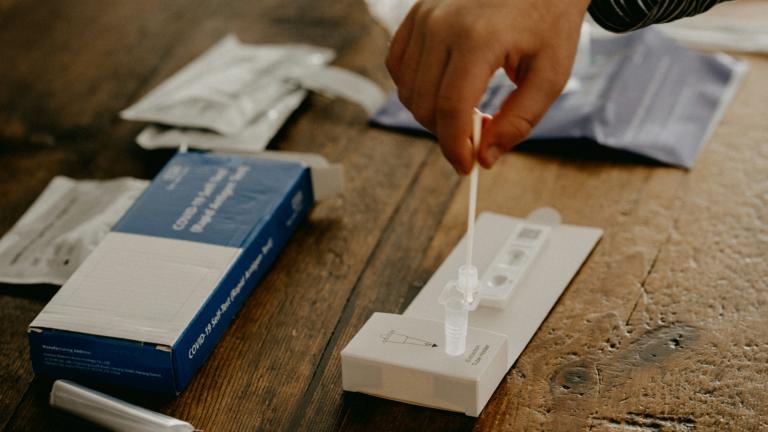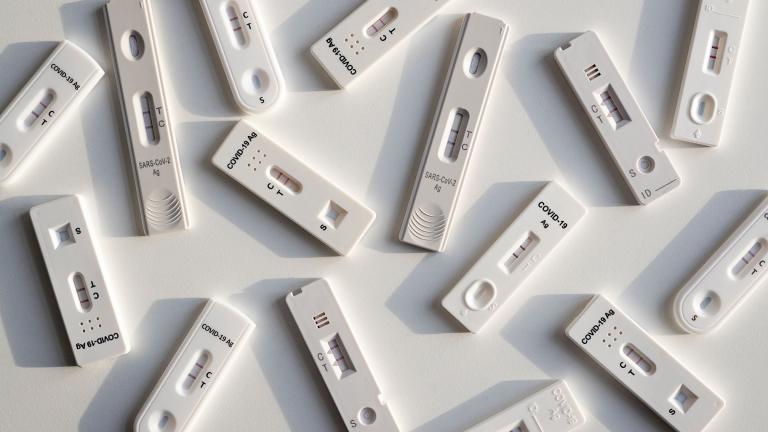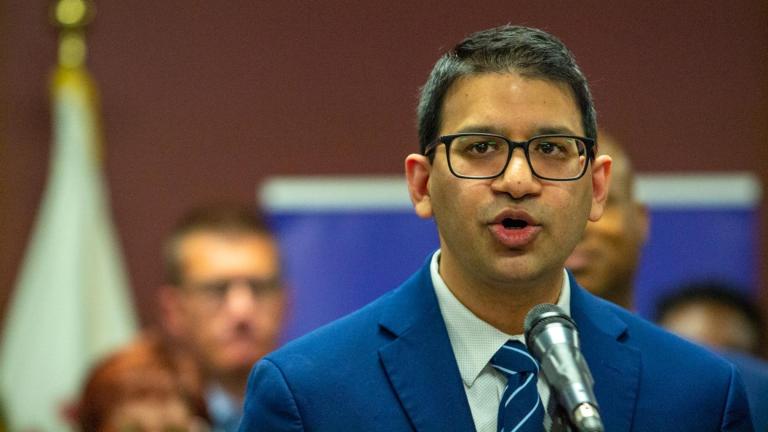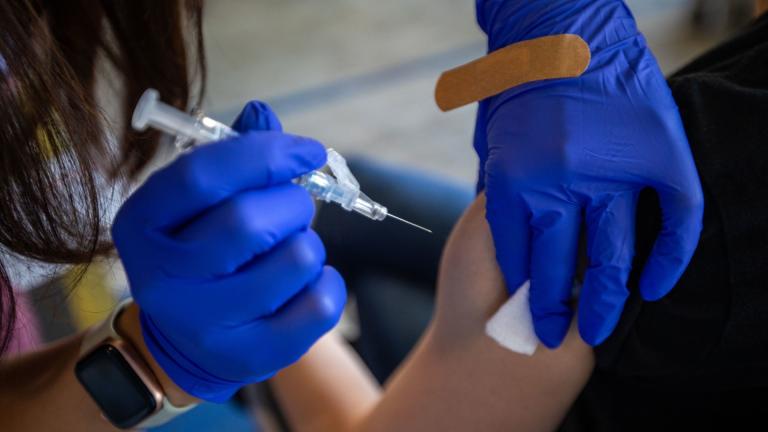Local doctors say that vaccine hesitancy may have been an issue when vaccines were first being developed and rolled out, but now the main issues are equitable access and supply.
Earlier this week, President Joe Biden said that by the end of May there would be enough coronavirus vaccines for every adult American.
But anti-vaccination conspiracy theories continue to spread on social media, and many people remain distrustful of vaccines. And a history of unethical medical experiments on people of color has often been cited as one reason why vaccination rates in Black and Latino communities have lagged behind that for Whites.
However, two local Chicago doctors interviewed by “Chicago Tonight” said that the key issue now for most people is simply being able to get an appointment to get the vaccine.
Dr. June McKoy, a geriatrician and cancer specialist at Northwestern Medicine’s Feinberg School of Medicine, says that the patients she serves, many of whom are in nursing homes, are keen to get vaccinated.
“They know that there’s a virus. They understand it has killed a lot of people. And most importantly, they understand as a group they are at the greatest risk at this point, and they are doing everything they can to protect themselves,” said McKoy.
She says that for those people who are distrustful of vaccines, the issue goes beyond unethical past practices.
“I think it goes to a distrust of institutions,” said McKoy. “A fundamental mistrust that has been building for decades of government. So, it’s not just Tuskegee. People are saying ‘I don’t trust vaccines.’ We know African Americans have a lower percentage of taking the flu vaccine... so, it’s not just the coronavirus vaccine, it’s vaccines in general.”
McKoy says the impact of the pandemic has been devastating on the elderly patients she serves.
“Not only have people died, but what we are seeing is the profound isolation that an older adult has had to experience. And with that has come things like depression. And for those who had depression before it has gotten worse,” said McKoy.
Their inability to connect with family and friends has also led to a worsening of memory and cognition, according to McKoy who says she is also seeing impacts on their physical health.
“For those who have survived, they’re living a different kind of life, and you see this with the withdrawn appearance that they have. Not eating as much, losing weight. … There are few people who have weathered it really well to be honest,” said McKoy.
Dr. Marina Del Rios, an emergency room doctor at UI Health and the first person in Chicago to be vaccinated, says that she has noticed a change in her colleagues, some of whom were initially reluctant to get vaccinated.
“There is definitely a change from December,” said Del Rios. “Although not a 100% of people have been convinced to take that next step of signing up for an appointment, I can report that the majority of the people that in December were hesitant, during my last shift a few days ago when I circled back to them, they said, ‘Oh yes, I’ve made my appointment,’ or ‘I got my shot last week.’ There are still a few stragglers who are not saying no but just saying they are going to wait a little more.”
Del Rios, like McKoy, says that from her perspective the crucial issue now is vaccine supply and equitable access. She also says that mass vaccination sites are not the best way to reach vulnerable populations who may not have transport or time to travel across town to be get their shot. She adds that web-based appointment systems disadvantage people without fast internet access or perhaps no internet access at all.
“The truth is that Chicago is not getting enough vaccines for the demand that there is right now and so that becomes a barrier,” said Del Rios. “Also, the way a lot of the systems for making appointments are set up, they’re very tech-based.... It’s a first-come, first-served process which is really not what it should be if we are focused on getting our phase 1A and 1B folks vaccinated.”
Del Rios said the city needs to be more purposeful about reaching out, signing up, and assigning slots to people in communities of color that have been hardest hit by the virus.
“That’s not what is happening. We are just doing this rollout and it’s the ‘Hunger Games’ again. It’s whoever can get their first gets the shot,” said Del Rios.
She says she would advise the city to use community health workers who are already known and trusted to help distribute the vaccines, including going door-to-door, rather than relying on “glitzy big mass vaccination sites.”
“You have to bring the vaccine where they are,” said Del Rios. “One of the exciting things about the Johnson & Johnson vaccine is that it is easier to transport. It doesn’t have the same storage requirements. So why not use that vaccine. Give it to community health workers and have them go into neighborhoods and just go door-to-door. There is a group of doctors that did that in Philadelphia with a senior citizen building, they just went door-to-door through that building and got everyone vaccinated. That’s the model we should be doing, particularly for our elderly and our disabled.”
McKoy says the key to reaching the most vulnerable communities is to have “trusted messengers” to spread the word.
“Bringing on a movie star or Beyonce, that many people love, she will not convince them,” said McKoy. “It’s going to be the next-door neighbor they have known all their lives. It’s going to be a schoolteacher who lives down the block. It’s going to be their family doctor, or pastor... So that should be the strategy I believe.”








